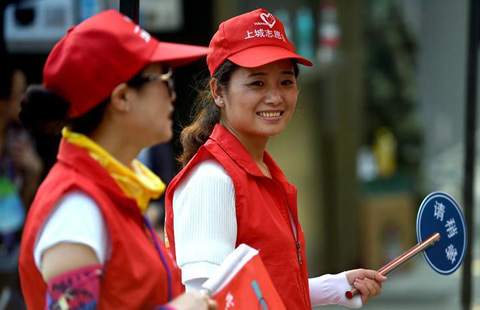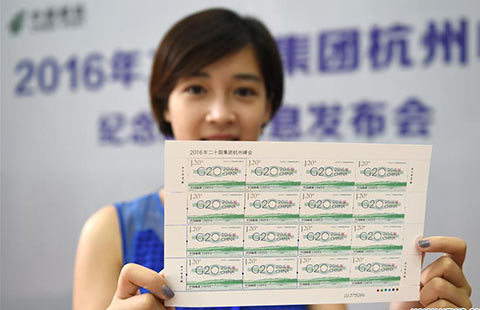G20 to promote innovation, green finance and international policy coordination: expert
By Zhu Lingqing (chinadaily.com.cn) Updated: 2016-08-25 13:52As the host of the upcoming Group of 20 (G20) summit early next month, China is expected to promote policy coordination among the international community, said Chen Gang, senior research fellow with the East Asia Institute at the National University of Singapore, according to a report by Xinhua News Agency.
In a recent interview with Xinhua, Chen talked about the role of the G20 summit and how to construct an innovative and inclusive world economy.
Chen said as the world economy's governance remains a daunting task in coordinating different interests, the G20 has not gone far enough, especially in monetary policy and government fiscal policy.
As the global trade liberalization under the World Trade Organization (WTO) framework has suffered setbacks in the past few years, the G20 is expected to keep promoting global trade liberalization and fighting against trade protectionism, Chen said.
He recognized that China has played its role in promoting the improvement of the international financial system, saying the inclusion of the yuan into the International Monetary Fund's (IMF) Special Drawing Rights (SDR) basket as a fifth currency last year is a significant breakthrough.
If the fluctuation of the yuan can be more stable under the market system and China can take more moves to promote the connection between domestic and international market, such as Shanghai-Hong Kong Stock Connect and Shenzhen-Hong Kong Stock Connect, the global financial system governance will benefit, Chen said.
Chen said just as the rise of Asia's economy benefited from the large-scale transformation of industrialization and urbanization in China, China's innovation development at the present will promote the economic development in China and even in Asia.
Facing today's global economic slowdown, innovation, especially innovation in the service sector and modern manufacturing sector, is a significant part of promoting economic growth, said Chen. And the fierce competition among countries indicates that gaining the initiative will give them advantages in future development.
Chen noticed that China practiced green finance as early as 2007, including green credit and green Initial Public Offerings (IPO), but did not strongly implement it, which is because the financial institutions did not factor in environmental protection as an important part of the financial system.
Environmental protection should be involved in the auditing standard of financing, said Chen. He thought although a number of useful attempts were made in this area globally, there is still a long way to go.
Since the condition for promoting green finance has now improved a lot, the cost of environmental protection should be reflected in the market price to urge the financial sector to take it in as a key consideration, said Chen.
As for the global issue of corruption, Chen acknowledged China's achievements in anti-corruption and expected the G20 Summit to encourage the international community to achieve more extensive cooperation and agreement on anti corruption and anti money laundering.
In addition, Chen said being invited by China to attend the G20 Summit as a guest country proves Singapore's key role in global finance and the good relationship between the two countries.
- Xiaomi and China Mobile launch new Redmi Note 4 with hopes channels boost sales
- China's unemployment rates are authentic, continue to be stable
- China banking sector onshore assets up 14.5%
- China in golden age of innovation and entrepreneurship: Official
- China stresses private, quality investment in northeast revival plan
- Moscow International Automobile Salon kicks off
- G20 to promote innovation, green finance and international policy coordination: expert
- Intelligent driving startup Jidou raises 53 million yuan


















